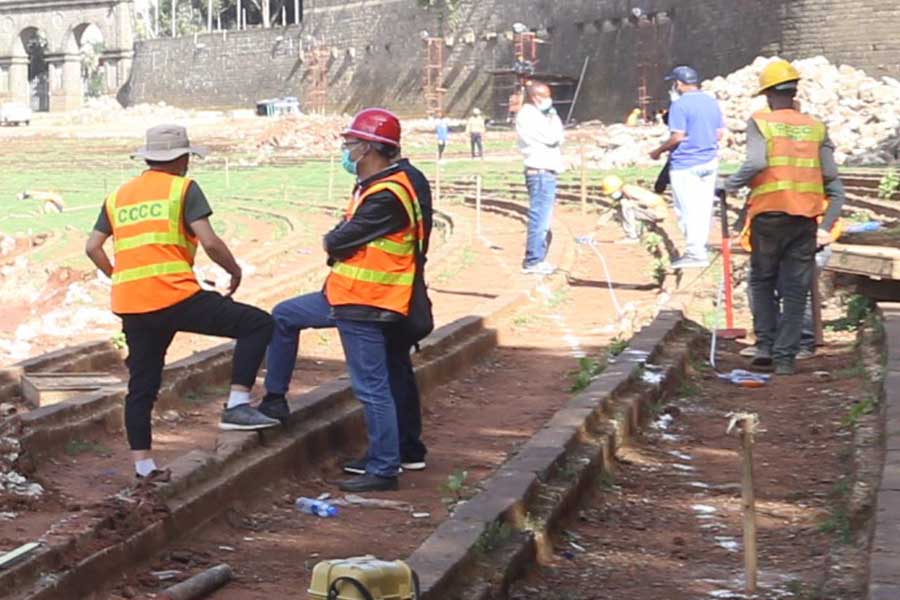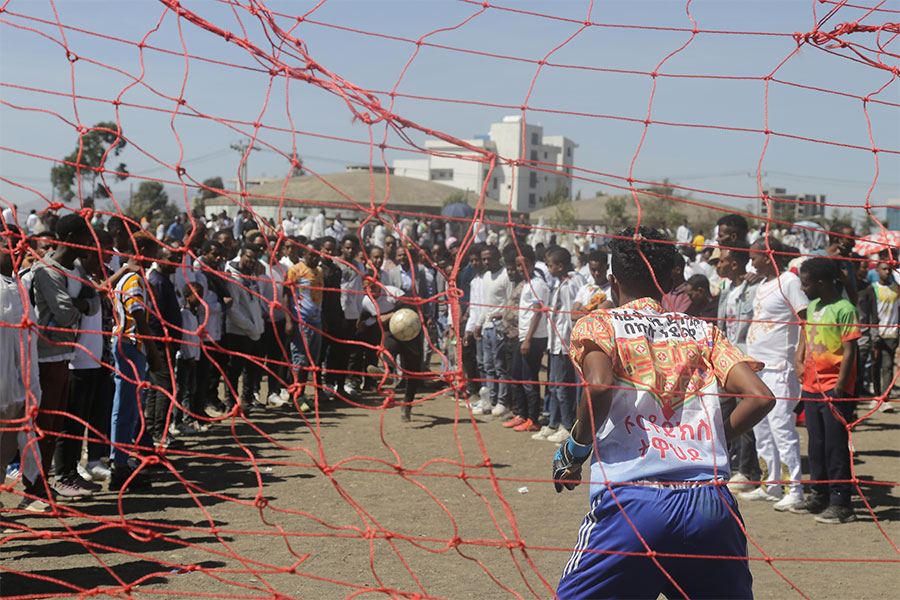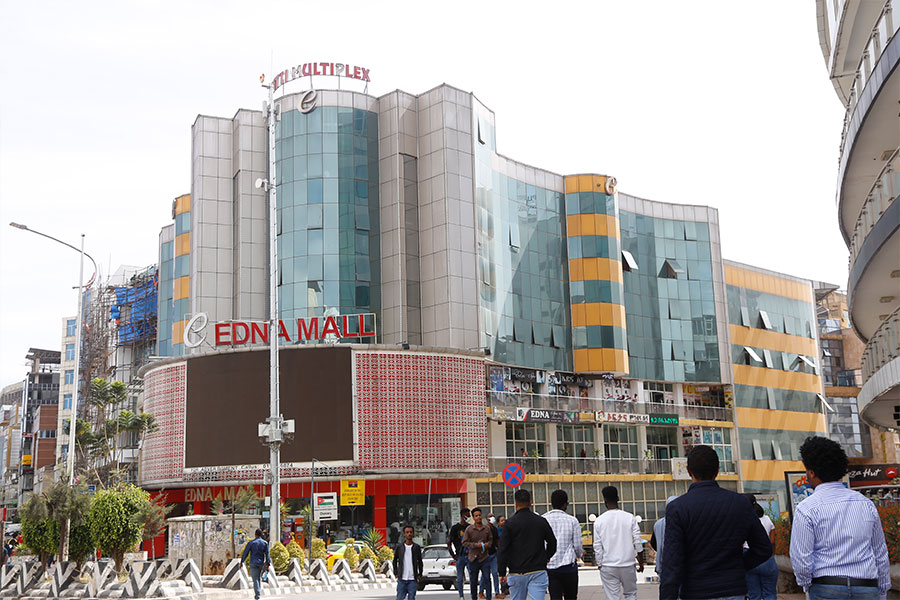
Driving for the hotel industry for seven years, he has spent half of those years in the service of his current employer, Monarch Hotel.
Last month, the driver, who requested anonymity, received 500 Br from service charge in May. His normal salary is 2,500 Br. This is especially tough since he supports his parents.
With 160 staff in eight departments, Monarch Hotel has also been serving breakfast, lunch and dinner to its employees. But the Hotel lifted the offer of breakfast, calling it too expensive.
Monarch has been continuing to pay basic salaries, but the service charge is no longer being collected. Since the pandemic, many hotels, including Monarch, have lost revenues and are taking other measures to keep their doors open.
It has been three months now since the Novel Coronavirus (COVID-19) arrived in Ethiopia, barging into and disrupting people's lives. It is even possible that the pandemic has struck a fatal blow to some operators in the hotel and tourism sector.
After Ethiopia reported the first case in mid-March, the hotel room occupancy rate slumped to below two percent, leading to average monthly losses of 35 million dollars in revenues.
Hoteliers are in between a rock and a hard place as to whether or not to keep their doors open in the hope of expecting customers and sustaining their employees.
The situation has pushed most of the hotels, which were forced to close doors or operate at reduced capacity, to lay off employees, give furloughs or cut salaries.
The driver described the situation as dismal.
"Even though we understand the current problem," he said, "we expected more from the hotel owners."
Monarch has been receiving a series of complaints from employees after the virus impacted the sector.
For the last several months, employees have been filing grievances on the decision of the management to the Federation of Hotel & Tourism Service under the Confederation of Ethiopian Trade Unions (CETU).
The Hotel, which is operating at less than a seven percent occupancy rate, has cut off the service charge ever since the virus first started to harm the economy, the employee claims.
"They even took out the service charge print from the receipt but still charge customers 10pc on each order, and that money hasn't gone into our pockets since mid-March. It's going into the pockets of the owners," he said.
Yayirad Yemedew, marketing director of Monarch Hotel, admits that the Hotel has stopped collecting service charge since May 11.
"And we've increased the price of the food by 10pc. That's why," he said. "That made it possible to lift the service charge so that every waiter can get tipped by the customers."
"It's getting to the point where running this Hotel can't be sustained for more than two months even at this level of business," Yayirad told Fortune. "We understand the employees may be discontented with the service charge being lifted, but this measure was taken to keep our doors open."
Monarch is not the only hotel that is tangled up in this kind of drama. Swiss Inn Nexus Hotel, which recently cut the salary of employees by a minimum of 10pc and a maximum of 40pc, has also been bombarded with complaints from its staff.
"We've been taking leave every 15 days in rotation, and we work on the remaining days left from the month," said one employee who asked to remain anonymous. "This month I received 500 Br even though my salary was 1,200 Br."
With 160 staff in eight departments, Monarch Hotel has claimed it is getting to the point where it cannot keep its doors open for more than two months.
The Hotel, which has 250 employees, refutes this claim.
This month, 40 employees who have stayed home did not get paid, according to Zena Dawit, deputy general manager of Dag Trading Plc, the mother company of Nexus Hotel.
"We've been waiting on the loan from banks," he said. "We decided to pay those who were working first."
Out of the total number of employees, 105 have taken their annual leave, while the remaining are still on duty.
"For employees finishing up their annual leave, we had only paid them for the days they worked," said Zena. "But now after a discussion with the board and management, we've decided to pay them the rest of the money."
In response to the downturn in the hotel and tourism sector for the last 12 weeks since the virus entered the country, the Addis Abeba Hotel Owners Trade Sectoral Association, which has 150 hotels under its wing supporting 18,000 employees, has been working with the National Bank of Ethiopia (NBE) to respond to the damage inflicted upon the sector, according to Biniyam Bisrat, chairman of the Association.
"However, the presumed soft loan from the government has not yet reached any of the hotels," Biniyam said. "Upon the declaration of the release of the soft loan, this has created a disagreement with employees, who think that hoteliers are withholding the loan after getting it, which is false."
After the discussion, the NBE decided to pledge a 3.3-billion-Br soft loan to the sector with a five percent interest rate and one-year maturity period for the next six months starting in May.
To partake in this loan, banks have to sign a Master Loan Agreement with the central bank. By this agreement, banks are expected to give the money to the sector first, and they will go back to the governing bank with the necessary guarantee document.
Even though the government had announced this stimulus package, bankers have yet to attend to the needs of the sector.
"This is an ordinary loan procedure and is just taking time," said Wondoessen Teshome, president of Enat Bank. "As long as the sector fulfills the terms and conditions, the money will be released soon."
The Ethiopian Hotel Professional Association, which disclosed that 14 hotel owners have started laying off employees, held a discussion with the Ministry of Culture & Tourism on the bailout cash injection last week.
"We've come to realise the issue lies with the money not being released to the hotel owners," said Leulseged Mesele, president of the Association. "The money is expected to be released for hotels soon, and we hope the hotel owners act accordingly."
When employees hear a stimulus package is released, they think its automatically in the accounts of the hoteliers, according to Haileleul Yilma, operational manager of Swiss Inn Nexus Hotel.
"This leads to a rough relationship with owners," said Haileleul.
Kaleb Hotel, located near Edna Mall, is another hotel that took the step of revising employee payments in May. The Hotel claims that the management had first discussed the revision of salaries and later on tabled it to the city's Labour & Social Affairs Bureau, which was then sent back for discussion with the workers as well.
"We selected worker representatives, and we discussed it with them," said Getabicha Dejene, deputy managing director of Kaleb Hotel. "There was some discontent with the original revision, and we redid it accordingly, so it was approved."
Employees of Kaleb Hotel, however, tell a different story than the management.
"They just called us to talk about the pandemic, and they didn't talk about the salary revisions," said one of the employees. "They just recorded our attendance."
"We were called to the Bole District Social Affairs office this Wednesday," Getabicha said. "We're happy to explain and reply to the complaints."
The five-year-old Hotel, which has 64 rooms, has also lifted the service charge. In every earned service charge, it is now distributed among the employees who are on duty as a 500 Br stipend for transportation in addition to the basic salary.
"We believe this was a necessary move to maintain long-term sustainability without closing our doors," added Getabicha. "We've also asked to be part of the hotels that are being used as quarantine centres, and we're waiting for a reply."
Currently, there are a total of 23 hotels serving as quarantine hubs, including Skylight, Ghion, Azzeman, Saphire and Harambe hotels.
While others cut salaries and stopped paying service charges, employees of Ado-Tina Hotel, a 12-year-old institution located in Meskel Flower, claim they were not paid last month's salary in full.
Mesfin Worku, a gym coach who has been working in different hotels for the last 12 years, has voiced dissatisfaction against Ado-Tina Hotel, where he worked for the previous seven years.
"They didn't pay us our salary for May," said Mesfin, who has a salary of 3,000 Br and a child to raise.
Mesfin's employer, Ado-Tina Hotel, has closed its doors since April and except for security and cleaning staff has sent all of its employees home with annual leave.
"Last month, we reached the point where we couldn't pay the salary of the employees," said Mulugeta Ayalew, human resource manager of the Hotel. "If the government's promised soft loan arrives, we will be able to continue paying the staff; however, it's a tough situation to continue with payments now."
The Hotel, which has 80 employees and 32 rooms, has claimed that it has prepared the salary for May and will still deposit it in employee accounts even though it is already very late.
Disgruntled employees are taking their cases to the Federation of Hotel & Tourism, which has been a hub for complaints from workers that claim hoteliers are treating them unfairly. The Federation is also facilitating a discussion between hoteliers and employees and has succeeded in handling the accusations against hoteliers like Hilton Addis and Getfam Hotel.
There are already eight hotels in a case overseen by the Federation: Diamond Hotel, Damat Hotel, Sapphire Addis, Ambassador and Greek Club, in addition to Monarch, Nexus and Kaleb.
The cases range from unfair salary revisions, employees forced to take leave, unreasonable excuses to dismiss employees and cutting service charges to list a few, according to Asfaw Abebe, president of the Federation of Hotel & Tourism.
"We've been receiving complaints from employees who aren't members of the Federation," said Asfaw.
Ambassador Hotel has the most significant labour issues. The Hotel has sent all of its employees home with a month of salary, according to Asfaw.
"We're working to address this complaint now," he said.
Seid Mohammed Birhan, the owner of the Hotel, discredits this claim.
"We've dissolved unnecessary departments that elongated the working process, and we've laid off the four managers of these departments," he said. "We discussed this before the virus entered the country, although we didn't have minutes to these meetings, and we did this with legal advice."
Except for a few finance, security and cleaning employees, the rest have been sent home. The Hotel, which has 200 rooms, claims that salary is still being deposited in staff accounts.
The Ministry of Social & Labour Affairs is not oblivious to these complaints as well.
The Ministry is looking over the cases, according to Fekadu Gebru, director of harmonius industrial relations at the Ministry.
"We can't point fingers now at the hoteliers when they are working at a loss, but our investigation isn't final yet," Fekadu said.
The Hotel Owners Association is also expecting a swift response from the central bank after it sent a letter requesting the bank treat this matter not as standard loan procedure but with a sense of urgency to save the sector, according to Biniyam.
"With no operation income, the hoteliers have taken care of their employees for the last three months," Biniyam added, "but this doesn't mean that there are hotels that aren't at fault."
The Association created a new Addis Abeba Hotel Professional Association last week that is going to mainly work with the Owners Association to correct the hotels that are at fault, work on getting loans from the banks, and develop a recovery plan for the sector, according to Biniyam.
The pandemic is not something we can take on easily, according to Leyew Nigussie, service expert for over a decade and hotel organiser at Agape Hospitality Business.
"This issue of salary and operating income needs to be negotiated between hoteliers and their employees," Leyew said.
The government's response to this crisis needs to be as fast as possible. It is also important that the sector be monitored and evaluated to understand how to spend the soft loan money, which is even better than injecting the finance, according to the expert.
"Building up trained employees has been a long journey for the sector," he said. "They can't afford to lose their employees, hence, an intense deliberation is needed between the parties."
The hotel industry registered a 64pc average occupancy rate in the last fiscal year with an average daily rate of 72 dollars a room, according to the Addis Abeba Hotel Owners Trade Sectoral Association.
Out of the 130 members of the Association, 88pc of them have shut their doors partially or entirely due to low occupancy rates. About 56pc of them have entirely ceased operations. The capital city has a total of 1,968 hotels.
If this was a storm that would pass by in the short term, the government could pressure the owners to handle the situation despite the discomfort, according to Mehari Redae (PhD), assistant professor of law at Addis Abeba University's School of Law & Governance.
"However, it currently looks like the hotels can't do anything about this situation," he said, "and the government can't expect these profit-making companies to act like NGOs. The government is the last resort on this issue."
"We want to work. We don't want to sit at home," said the Monarch Hotel driver, "but we have to live too."
Correction: This story has been updated on June 8 2020
An earlier version of this article misstated that an employee of Monarch hotel was paid 500 birr in wages. That is wrong. It was service charge payments. We regret the error and sincerely apologise to our esteemed readers.
PUBLISHED ON
Jun 07,2020 [ VOL
21 , NO
1050]

Commentaries | Nov 14,2020

Radar | Nov 07,2020

Fortune News | Aug 22,2020

Viewpoints | Feb 20,2021

Fortune News | Sep 10,2021

Commentaries | Apr 10,2021

Fortune News | May 16,2020

Radar | Jan 28,2023

Sunday with Eden | Aug 14,2021

Fortune News | May 07,2022

Dec 22 , 2024 . By TIZITA SHEWAFERAW
Charged with transforming colossal state-owned enterprises into modern and competitiv...

Aug 18 , 2024 . By AKSAH ITALO
Although predictable Yonas Zerihun's job in the ride-hailing service is not immune to...

Jul 28 , 2024 . By TIZITA SHEWAFERAW
Unhabitual, perhaps too many, Samuel Gebreyohannes, 38, used to occasionally enjoy a couple of beers at breakfast. However, he recently swit...

Jul 13 , 2024 . By AKSAH ITALO
Investors who rely on tractors, trucks, and field vehicles for commuting, transporting commodities, and f...

Oct 4 , 2025
Eyob Tekalegn (PhD) had been in the Governor's chair for only weeks when, on Septembe...

Sep 27 , 2025
Four years into an experiment with “shock therapy” in education, the national moo...

Sep 20 , 2025
Getachew Reda's return to the national stage was always going to stir attention. Once...

Sep 13 , 2025
At its launch in Nairobi two years ago, the Africa Climate Summit was billed as the f...